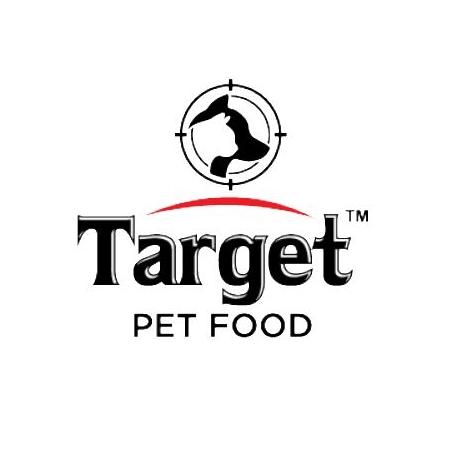Dog Infertility in Female
Introduction
In the most general sense, infertility is the inability to conceive, maintain a normal pregnancy or produce living offspring. More specifically, infertility in female dogs refers to the failure: 1) to ovulate, 2) to cycle normally, 3) to accept a male dog, 4) to conceive, 5) to successfully maintain the pregnancy, and/or 6) to deliver viable babies at or near-full term. A bitch should be labeled as "infertile" only after she has been through a well-timed management breeding program and after the male's fertility has been unequivocally established.
Causes & Prevention
Causes of Infertility in Female Dogs
The causes of infertility in female dogs are highly varied. Fertility requires a normal heat cycle and ovulation of normal eggs (ova) into a healthy reproductive tract, followed by fertilization of those eggs by normal sperm that are successfully introduced into the female. There also must be successful implantation of the embryos in the uterine lining, normal development of the fetuses, successful maintenance of the pregnancy and a successful delivery of live puppies.
By far the most common cause of infertility in domestic dogs is improper breeding management. This includes failing to properly detect and assess the progress of the bitch's heat (estrus) cycle, insemination at the wrong time and miscalculating the appropriate number of breedings to be accomplished per estrus cycle. Silent heats, split heats, abnormally long heats, missed heats and irregular heats all occur in female dogs and can contribute to breeding management timing errors.
After "bad timing," other common causes of reproductive failure in female dogs can be classified as infectious, anatomical, hormonal or other/miscellaneous.
Infections of the vagina or uterus can prevent conception and prevent the bitch from carrying her litter to term. Vaginal infections (vaginitis) are most frequently caused by bacterial microorganisms, especially by Brucella canis. Brucellosis is a venereal disease that causes infertility by either preventing conception or causing spontaneous abortion. Contrary to popular belief, the infectious microorganism, Brucella canis, can be transmitted sexually or orally with equal frequency and has the potential to infect people. Infection with the canine herpesvirus can also lead to infertility. Uterine infections can contribute to infertility, such as endometritis, pyometra/pyometritis and metritis.
Anatomical causes of female infertility are not as common as some of the other causes, but they do occur. Perhaps the most common are congenital strictures or constrictions inside the vaginal canal, and benign or malignant tumors, both of which can physically prevent successful mating and movement of sperm from the vagina through the cervix and into the uterus. Strictures often make mating painful or impossible and can make both the bitch and the stud dog reluctant to try to consummate the union. Blockage of the oviducts with tumors or masses can prevent ovulated eggs from successfully uniting with sperm. Ovarian abnormalities are common anatomical causes of infertility in dogs. They include ovarian cysts and tumors, which can cause prolonged heat cycles or shortened intervals between cycles. Cystic uterine endometrial hyperplasia is another common anatomical cause of infertility. Bitches that have previously been spayed (have had an ovariohysterectomy) obviously have legitimate anatomical reasons for their infertility. Bitches with intersex disorders (hermaphroditism; pseudohermaphroditism; others) have a poor chance of successfully reproducing. Fortunately, intersex disorders are very uncommon in dogs.
Hormonal influences are among the most important reasons for infertility in domestic dogs. Hormones are chemical substances produced by various glands in the body, such as the adrenal glands, pancreas, pituitary and thyroid. The most common hormonal cause of infertility in the bitch is hypothyroidism, or low circulating levels of thyroid hormones. The thyroid gland is located in the neck and secretes hormones that are essential for a multitude of body functions. Low levels of thyroid hormones can lead to lack of sex drive (libido) and infertility. The adrenal glands are paired structures located just above each kidney. They normally produce a number of important steroid hormones.
Adrenal dysfunction or insufficiency can interfere with the production of sex hormones that are necessary for proper reproductive function. Two common adrenal disorders in domestic dogs, Cushing's Disease (hyperadrenocorticism) and Addison's Disease (hypoadrenocorticism), usually prevent female dogs from conceiving and carrying a litter to term. The tiny pituitary gland, located deep in the brain, is critically involved in producing and releasing hormones that start and regulate the estrous cycle. Any disease or disorder of the pituitary can cause canine infertility due to abnormal heat cycling. This can include failure to ovulate, abnormal ovulation pattern or timing, persistent heat cycle, primary congenital anestrus (never having a heat cycle), split heat, silent heat and false pregnancy/pseudopregnancy.
Other causes of infertility in female dogs include genetic factors, which can contribute to embryonic defects and fetal malformation. These, in turn, can lead to mummified, reabsorbed or aborted puppies. Many additional factors can influence a bitch's ability to conceive and carry a litter to term, including environmental conditions (noise, crowding, poor hygiene/sanitation, psychological factors, temperature extremes and exposure to inclement weather), stress, poor or inadequate nutrition, vaccination and immune status, external and internal parasite management programs, administration of certain medications and the bitch's overall systemic health. Psychological factors can be important contributors to canine infertility. For example, many bitches raised exclusively as house pets are shy breeders, because they have not had much social contact with other dogs. Some males are extremely aggressive during mating, which can traumatize the bitch and create an unpleasant, fearful association with sexual activity. Close inbreeding can also interfere with normal fertility in subsequent generations.
Prevention of Infertility in Female Dogs
It is impossible to make meaningful generalizations about effective ways to prevent infertility in female dogs, because the causes can be so variable. However, inbreeding should be avoided by all but the most seasoned of breeders. Breeding animals should be kept away from environmental and household toxins and should not be given drugs for longer than medically necessary. Perhaps most importantly, infertility can be prevented by sound, thoughtful, well-managed breeding programs and practices on the part of both the stud and the bitch owners.
Rigorous physical and medical examinations and reliable note-taking are critical to managing the proper breeding a bitch. It generally is no longer considered good breeding protocol to simply place an intact female with an intact male and cross one's fingers in hopes that a successful mating, with conception and a full-term pregnancy, will take place. Planning is essential. When a bitch is expected to come into season, she should have a thorough pre-breeding work-up by a veterinarian knowledgeable about canine reproduction, which not all veterinarians are. Vaginal swabs and cytology are usually started shortly after a bitch visibly goes into heat, followed by ultrasound, progesterone and/or relaxin testing and ultimately abdominal radiographs (X-rays). Responsible breeders put a tremendous amount of thought, time, energy and money into getting their bitches pregnant and ensuring the production of a healthy litter. It is worth the expenditure on the front end to get the best chance of a wonderful outcome at the other.
Special Notes
Most female dogs first come into heat between 9 and 24 months of age, and then cycle on average every 6 months. Early heat cycles tend to be erratic. By 2 years, the cycles of most bitches have stabilized, although just as in women the cycles of female dogs can vary tremendously. One of the most common infectious bacterial causes of infertility in dogs, Brucella canis, is potentially infectious to people (zoonotic) through direct physical contact with urine, semen, vaginal discharge or aborted fetuses of infected dogs.
Symptoms & Signs
Symptoms of Infertility in Female Dogs
Most bitches have their first heat cycle around one year of age, give or take a few months. Thereafter, they typically have about 2 heat cycles per year. After a successful breeding, pregnancy can be detected by a skilled veterinarian or breeder at about 4 weeks into the pregnancy by physical palpation (feeling) of the abdomen and pelvic area. This should not be done by an inexperienced person, as it could be quite dangerous to the developing fetuses.
Absence of heat cycles
Prolonged time between heat cycles (prolonged inter-estrous interval)
Abnormally frequent heat cycles (inter-estrous interval of 4 months of less between heats)
Silent heats (no obvious outward signs of vulvar swelling or bleeding)
Split heats
Failure to allow the male to mount and breed
Failure to achieve a tie during mating
Failure to conceive
Failure to carry a pregnancy to term
Reabsorption or mummification of puppies
Abortion
Bitches at Increased Risk
There is no well-established breed predisposition to sterility. However, there are anecdotal suggestions that Norwich Terriers and some of the sight hounds may have a higher-than-normal rate of infertility. Breeds that are predisposed to thyroid disease (hypothyroidism), and those that have an increased risk of adrenal disorders (Cushing's disease/hyperadrenocorticism and Addison's disease/hypoadrenocorticism), also have a greater chance of being infertile. Infertility seems to be more prevalent in certain highly inbred lines of purebred dogs. Advanced age increases the chances of infertility; the prime breeding years for bitches are between 2 and 5 years of age in most breeds.
Diagnosis & Tests
How Infertility in Female Dogs is Diagnosed
Whenever a breeding does not result in a successful pregnancy, the fertility of both the male and the female should be assessed. In females, that assessment should include whether the problem was failure to ovulate, failure to conceive, failure of implantation, early embryonic death, fetal resorption, fetal mummification, abortion or something else. It can be challenging, at best, to identify the precise reason why a particular bitch did not conceive or carry a litter to term. Many times, the cause is never determined.
Many breeders bring their bitches to a reproductive veterinarian both before and after they are bred, to properly manage the mating process and increase the chances of success. Determining whether the bitch is pregnant is one of the first steps in diagnosing infertility. A skilled veterinarian or breeder may be able to palpate (feel) puppies by 3 or 4 weeks of age, depending on the size of the breed and of the litter. More commonly, they will conduct an abdominal ultrasound roughly 30 days into the pregnancy, to look for visible fetal heartbeats. Ultrasound is a wonderful way to diagnose a pregnancy or the lack of pregnancy, but it is not particularly reliable as a method to count the number of fetuses and tends to underestimate the ultimate litter size. Also at about 30 days, blood can be drawn to check levels of the hormone relaxin, which can strongly indicate whether or not the bitch is pregnant. One of the most frequently used techniques to diagnose pregnancy is abdominal radiography (X-rays), typically done around day 45 of the pregnancy. X-rays at or after 45 days are a good way to quantify the number of puppies in the uterus, because by that time fetal skeletons are well-enough formed to be separately counted.
When an owner brings a bitch to the clinic to assess her fertility, the veterinarian will take a thorough history that includes her familial and personal reproductive history, her past breeding successes or failures (including the method of breeding and type of semen used – fresh, chilled or frozen), her history of illnesses or injuries and her drug and vaccination background. Diet and dietary supplements will be discussed, as will details of the dog's living environment such as housing, number of other animals in the household, indoor versus outdoor living and the like. The stud dog's history should also be explored, including whether he is a recent proven producer of multiple live-puppy litters, his age, his Brucella canis test status and the quality, motility, morphology and concentration of his semen.
The veterinarian will also conduct a thorough physical and reproductive examination. He will digitally examine the bitch's vagina with a gloved finger to make sure that there are no strictures, constrictions, masses or other physical abnormalities that may be causing pain, interfering with mating or preventing normal passage of sperm and seminal fluid through the cervix into the uterus. Vaginal examination can be quite difficult in tiny toy breeds, for obvious reasons. The veterinarian will examine the patient's mammary chains for any signs of abnormality or disease. Other common initial diagnostic tests are routine blood work (a complete blood count and serum biochemistry profile) and a urinalysis. The results of those tests will reveal the overall health of the bitch's organ systems and can also identify the presence of infections that may be contributing to infertility. Unfortunately, sometimes the initial data base results are all unremarkable.
Females suspected of infertility will probably be tested for brucellosis by a simple blood test, especially if they were not tested for this infection shortly before the breeding was attempted and even more so if the males were not tested. Brucellosis is a serious and highly contagious sexually and orally transmitted canine disease. The infectious microorganism, Brucella canis, is shed in large numbers in semen, vaginal secretions and urine of infected dogs.
Other, more advanced diagnostic tools are abdominal radiographs (X-rays) and ultrasound to assess the integrity of internal reproductive organs; these can be particularly helpful to identify uterine infections (endrometritis, pyometritis). Vaginal swabs can be used to sample and examine vaginal cells microscopically through a process called cytology. Vaginal samples can also be submitted for culture, which is a process that attempts to grow any infectious microorganisms in a laboratory setting.
Various blood tests are available to measure the levels of circulating hormones that are critical to ovulation, conception, maintenance of pregnancy and successful delivery of a live litter. These include follicle stimulating hormone (FSH), luteinizing hormone (LH), estrogen, progesterone and thyroid hormones, among others. Progesterone assays are valuable to determine whether or not ovulation actually occurred. If an adult bitch has never gone through a heat cycle (primary anestrus), her actual chromosomal makeup can also be evaluated through a process called karyotyping.
More invasive advanced diagnostic techniques are surgical ultrasound-guided biopsies of the uterus and ovaries and vaginoscopy (looking into the vaginal canal using a wand-like instrument with a camera on its tip). Full surgical abdominal exploration under general anesthesia can also be done. Ovarian tumors and cysts can only be definitively diagnosed by exploratory abdominal surgery and biopsy; normally, a bitch with ovarian tumors will be spayed during that surgical diagnostic procedure. Biopsy samples will be submitted to a diagnostic laboratory for complete analysis.
Special Notes
Because the causes of infertility in female dogs are so widely varied, diagnosing the precise cause of the problem can be extremely difficult, time-consuming and costly. In the end, the reason for her infertility may never be determined.
Treatment Options
Treatment Options
The primary goals of treating infertility in female dogs are to identify and rectify the underlying cause of the condition. In the majority of cases – but not all of them – the cause is ineffective breeding management practices. In other cases, the treatment must be tailored to a specific underlying medical problem. How to effectively manage a canine breeding program is a topic beyond the scope of this article.
Bitches with vaginal or uterine infections can be treated with appropriate antibiotics. Spaying is often recommended in cases of severe uterine infections (pyometritis; pyometra). If the bitch is pregnant, sometimes hormone injections can be given in an attempt to preserve her pregnancy to term. This is somewhat risky and not always successful. Prostaglandin therapy can be used to treat cystic endometrial hyperplasia with some degree of success. Dogs with persistent estrus (prolonged heat cycles) can be given human chorionic gonadotropin (HCG) or gonadotropin-releasing hormone (GRH) in an effort to induce ovulation and bring the heat cycle to an end. A number of different substances and protocols have been used to try and induce estrus at a particular time. There are no reliably documented controlled studies proving the efficacy of any of these protocols at the present time. Anecdotally, however, some breeders and veterinarians reportedly have had success in inducing estrus and ovulation by administering assorted drugs at different times and in different combinations. Some of the female puppies from those litters have developed abnormal signs of masculinization.
Vaginal strictures can be surgically severed with the bitch under general anesthesia. Hormone injections may effectively treat some ovarian cysts, but cysts also can be drained during abdominal exploratory surgery. Ovarian tumors must be surgically removed.
Bitches with infertility caused by hypothyroidism may have their fertility restored following appropriate thyroid hormone replacement therapy. Pituitary and other hormone replacement therapies (estrogen, progesterone, others) may also be available.
Prognosis
The prognosis for most apparently infertile bitches is generally good to excellent, if the owner is committed to following a strict breeding management program. Bitches with vaginal, ovarian or uterine disorders or diseases have a more guarded prognosis. Those with conformational abnormalities have a varied prognosis, depending upon whether the defects are surgically correctable. Infectious causes of infertility are usually treatable with appropriate medications, although brucellosis can cause irreversible sterility.
















































